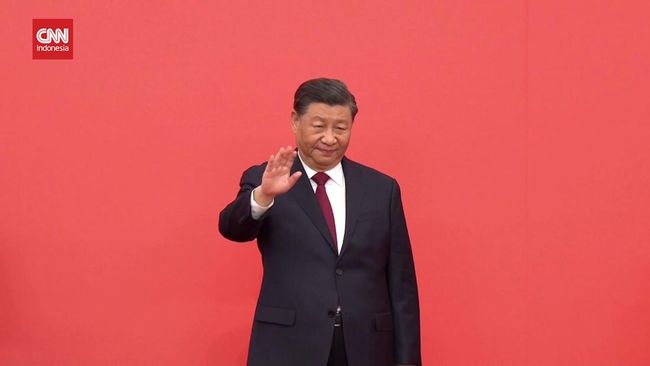Investor China run after the president of China Xi Jinping re-elected to lead the government for a third term.
This is reflected in the decline in shares of the Chinese stock exchange and the weakening of the yuan against the US dollar.
Chinese stocks listed in Hong Kong and New York fell on Monday, just a day after Xi was elected China’s leader for the third time in the Chinese Communist Party Congress.
The next day, the yuan fell to its lowest level against the US dollar in nearly 15 years. In overseas markets, the Chinese currency has even been trading at its weakest point since data provider Refinitiv began charting in 2010.
“The market is clearly disappointed with the new seven-person Politburo Standing Committee, full of allies of Xi (Jinping),” Lilian Co., strategic manager of the China Panda Fund, quoted by CNN on Thursday (26/10).
“Because Xi’s (Jinping) ideology hasn’t been market-friendly in recent years. An executive team loyal to Xi means there is no change in political direction during his time in power,” he continued.
Some of the missing names in Xi Jinping’s new team are senior officials who have supported market reforms. Among others, Chinese Premier Li Keqiang, Vice Premier Liu He and the governor of the Chinese central bank Yi Gang.
Investors fear that Xi’s power will mean continuing the policy of several compelling strategies, such as zero-covid and repression of the private sector which, according to them, have caused severe damage to China’s second largest economy.
Bocconi University professor and Chinese economist Sonja Opper highlighted Xi Jinping’s immutable tradition of prioritizing personal loyalty over one’s competence and productivity.
“The risk is that the Chinese leadership will isolate itself and lose sight of alternative, perhaps better, ways to face the many challenges that the country has to face”.
The World Bank recently reduced its forecast for China’s growth to 2.8% in 2022, the first time it predicts that the Chinese economy will lag behind other Asian economies since 1990. Beijing’s official target is to grow by 5.5% for this year.
Analysts say that if Xi closes the door to market liberalization, policies could be increasingly ideology-driven that would further damage private industry and exacerbate US-China tensions.
(sk / bir)


